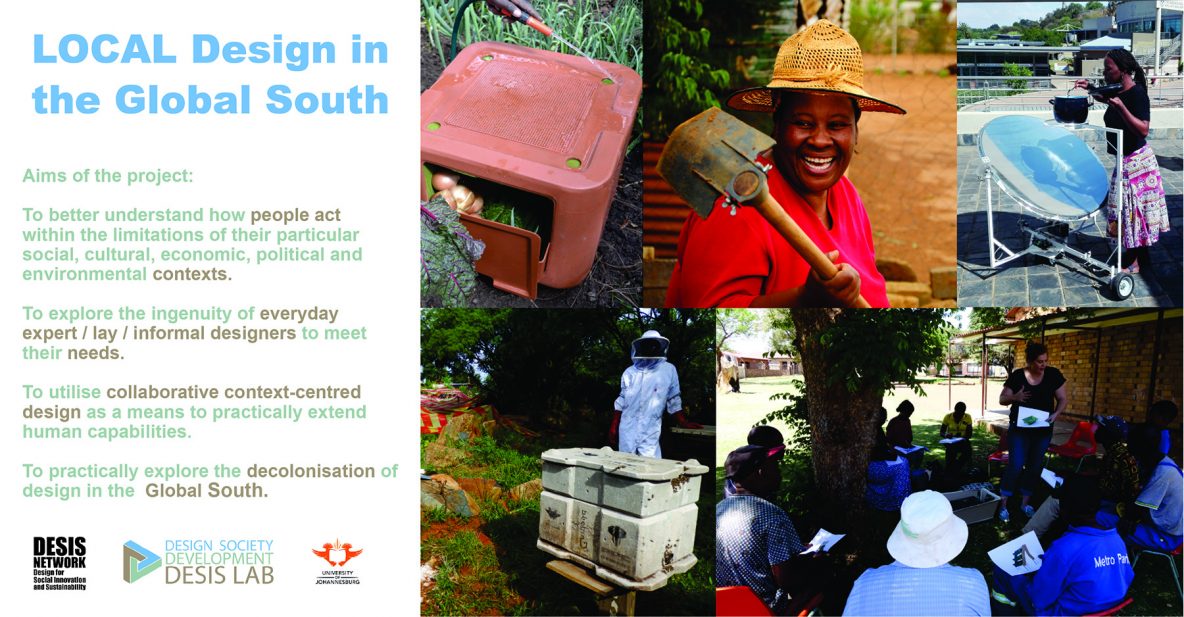I was a co-founder of the Design Society Development (DSD) Design for Social Innovation and Sustainability (DESIS) Lab in 2014 and was intimately involved in its development as a design research community of practice at the UJ Faculty of Art, Design and Architecture until I moved to Aotearoa New Zealand in 2021.
Overview:
The DESIS Network is a constellation of autonomous but interconnected DESIS Labs – as of 2021, there are 59 labs worldwide, with only 3 based in Africa. The DESIS Network is managed under the association of the Politecnico di Milano, Italy; The New School, USA; University of Arts London, UK; Universidade Federal do Rio de Janeiro, Brazil; Jiangnan University, China; and Tonji University, China. DESIS Labs are independent, but connected, groups of academics, researchers and students who orient their design and research activities towards social innovation and sustainability. They operate at the local scale with local partners and in broader collaboration with other DESIS Labs to actively participate in large-scale projects and programs.
The DSD DESIS Lab is a multi-disciplinary community of practice, which grew organically out of a need to link together academics with similar design research interests in our Faculty. In 2020, the DSD DESIS Lab was collectively organised through a steering committee consisting of myself, Terence Fenn, Desiree Smal, Antonio Marín-Pacheco, Ashton Moseley and Marcha Naudé. The main thrust of the Lab was to better understand how design can best serve the emerging needs of broader society, specifically in the face of staggering inequality and rapid change in Gauteng, South Africa. To deal with such a complex undertaking design research in the lab was inherently interdisciplinary and included participants from design, development studies, architecture, planning, economics, engineering and art. The DSD DESIS Lab met monthly to interrogate research, projects, methods and products that attempt to create positive impact at the intersection of socio-technical and ecological systems within our specific context.
Some of the questions the DSD DESIS Lab grappled with included:
- What role can design play in addressing social, cultural and environmental issues through technology and innovation?
- How can designers help to make sense of an increasingly complex and interconnected world?
- How should designers transform the way they think and do, now and in the future, in order to address issues like social injustice?
- How can design act as a catalyst for introducing technology, where appropriate, to better the lives of people?
- How could the impact of design be assessed and evaluated, and how could this feed into the design process and design education?
Projects within the DSD DESIS Lab were strategically focused under three key thematic areas:
- Spatial and Interaction Design in African Cities (SIXD/AC)
- LOCAL Design in the Global South
- Gender in Design
Outcomes:
- Many of the projects that I have supervised at UJ, as well as collaborative research projects I was a co-researcher on, were in some way aligned to the DSD DESIS Lab. The outcomes of this work are therefore found in the other projects on this website as well as those on the DSD DESIS Lab website: www.designsocietydevelopment.org









